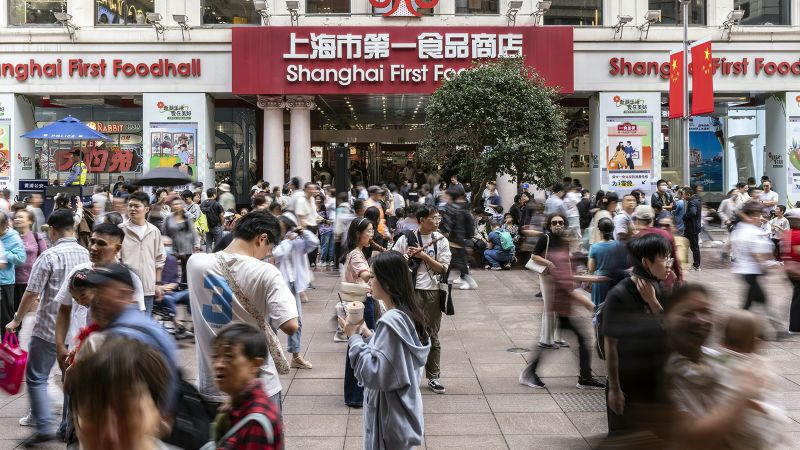China has allocated 200 billion yuan ($28 billion) for local government investment projects this year in an effort to meet its economic growth targets. The National Development and Reform Commission (NDRC) announced the news at a press conference, disappointing investors who were expecting a larger stimulus package. The NDRC chairman, Zheng Shanjie, expressed confidence in achieving the country’s goals for economic and social development. Despite setting a 5% growth target earlier in the year, weak economic data over the summer raised concerns about meeting this goal. China’s economy is currently facing challenges such as a property crisis, weak spending, and high youth unemployment.
To assist local governments burdened with debt, Beijing will provide 100 billion yuan from the central government’s budget and an additional 100 billion yuan for investment projects. Economists had anticipated additional fiscal measures totaling around 2 trillion yuan to be announced after Chinese leader Xi Jinping approved a growth plan in September following poor economic data. While the NDRC’s pro-growth stance was clear, the lack of details on new fiscal measures left investors disappointed, especially after the recent focus on monetary policy rather than fiscal measures.
Despite the lack of a significant fiscal announcement, the stock markets in Hong Kong and mainland China saw mixed reactions. Shanghai and Shenzhen blue-chip stocks initially rose but later declined, while Hong Kong’s Hang Seng Index experienced a significant loss. Economists believe more steps need to be taken to increase consumer confidence and stimulate spending. Suggestions have been made for Beijing to issue as much as 10 trillion yuan in long-term government bonds to fund infrastructure and public works, with some economists advocating for a stimulus package similar to those implemented in the past.
In late September, the People’s Bank of China made a series of moves to support the economy, including interest rate cuts and reductions in reserve requirements for banks. Measures were also taken to assist the struggling property sector, such as cuts to mortgage rates and downpayment requirements. The government announced cash handouts to disadvantaged citizens and subsidies for recent graduates facing unemployment. The Communist Party’s Politburo dedicated a meeting to economic affairs, acknowledging new challenges and vowing to boost fiscal spending, stabilize the property market, and improve employment opportunities for graduates and migrant workers.
Overall, China’s economic outlook remains uncertain, with various challenges affecting growth and stability. The government’s efforts to support the economy through fiscal and monetary measures have been met with mixed reactions from investors and economists. It remains to be seen whether additional stimulus measures will be implemented to address the country’s economic issues and restore confidence among consumers.















